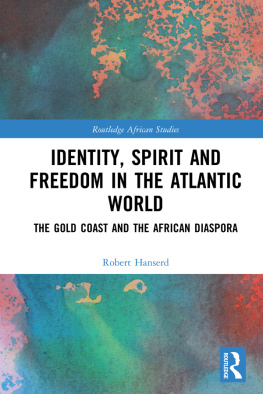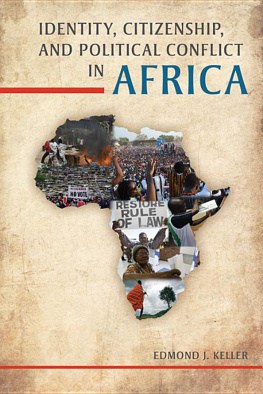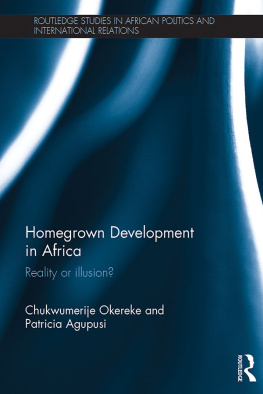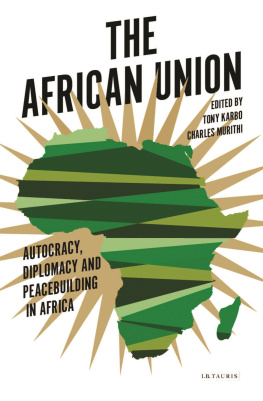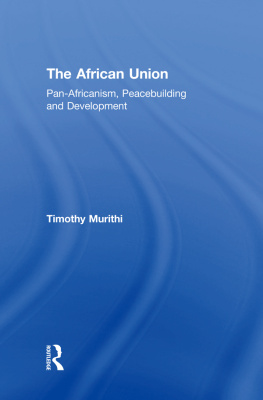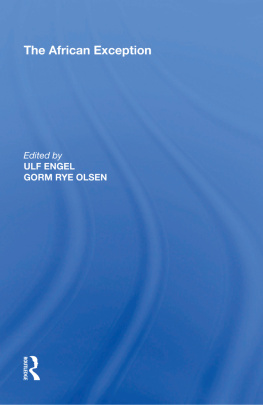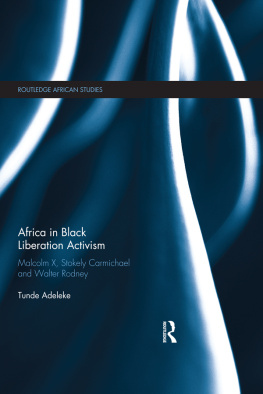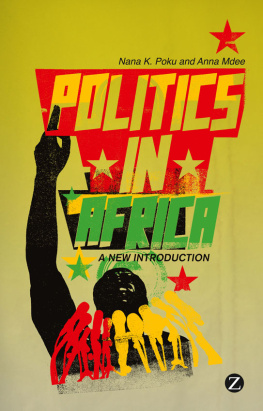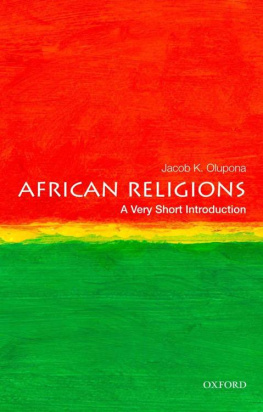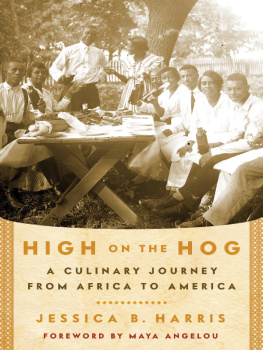William Ackah has written a passionate and eloquent monograph on the search for the black mans identity. His journey of intellectual inquiry is infinitely more important than any eventual destination, if indeed, there is a final point of arrival in such a quest. Wisdom often is acquired through the voyage. Identifying a final destination may terminate the search. Most troubling of all perhaps, in the authors quest, is the dichotomy between the search for a positive role model of black identity in the African and Caribbean post-independence experience, or in the achievements of black people living in, and of, the developed world. Those worlds are, and remain, far apart. Pan-Africanism is a heroic attempt to bridge the divide. The chasm, alas, proved to be too wide. But why is this so?
Myths are explored, to be both understood and exposed. The very core of Pan-Africanist meaning is interrogated and turned inside out, putting the spotlight on todays realities critically alongside yesterdays dreams and aspirations. Nationalism and socialism, core components of the original Pan-African pantheon, are held up to the light and found wanting. Pan-Africanism was their harbinger. Post-independence experience found the ideology of nationalism bankrupt in providing effective policy directions, and socialism a veritable blind path. Pan-Africanism remained a preserve of political elites and intellectuals. One could argue that whilst chronic poverty in Africa persists, the lasting power of any vision which does not help sustain and improve livelihoods will have a limited impact. In fact, nationalism has been the garb used to preserve the legitimacy, and also too often, the path to accumulation, of most but not all of the African political elites. Pan-Africanism itself, could never seriously challenge the ideology of nationalism which guaranteed the bailiwick of post-independence political elites. It is the contention of William Ackah that Pan-Africanisms call for unity, in the face of a common colonial oppression and racism, offered no guide to help steer Africa out of its current malaise. As the author observes, the concerns of African people and those of the elites of the diaspora and African political leaders do not converge.
Basil Davidsons deeply reflective and questioning work, The Black Mans Burden, has a subtitle which may contribute part of the answer to Ackahs search.1 It is quite simply, Africa and the Curse of the Nation State. Davidsons argument is powerful and reinforces many of the findings of Ackahs own investigations. In essence, Africas post-colonial leaders adopted the ideology of nationalism and the structures of the nation-state from Europe and North America and turned their backs on their own African heritage:
The future was not to grow out of the past organically and developmentally, but from an entirely alien dispensation.2
Searching for a positive role model for black identity in the African post-independence experience is searching not for an African, but a Western model which is both ill-suited and ill adapted to, African experience, and what is more, one that negates the very African roots of the peoples of the continent.
Davidsons thesis is that Africa has undergone a long experiment in civilising the continent, first by the colonisers and later by those African elites who in the main, accepted the premises of the West. What did this civilising project imply? In effect, nothing less than denying Africas own history and therefore its identity. Europes project in Africa taught that nothing useful could develop without denying Africas roots and a slavish acceptance of models drawn from entirely different histories.3 Did Pan-Africanism therefore, founder on a dual cultural dispossession, that of intellectuals and elites of the diaspora and those of the African continent itself? William Ackahs reflections reinforce those of Basil Davidson cited above. Ackah summarises thus: too many African elites are caught in the grip of Westernisation to the detriment of their own people. Emulation of the Western experience leads automatically to dependence upon the West, in his conclusion. Surely the search for the black mans identity, or any other identity, must begin by re-evaluating and cherishing ones own roots, whatever they may be?
South Africas Presidential replacement for Nelson Mandela, Thabo Mbeki, announced an African renaissance in 1997. Briefly, a new star seemed to be entering the firmament. Africa was beginning to put its own house in order without outside Western interference. Angola, Uganda, Rwanda and others were helping opposition leader Laurent-Dsir Kabila to oust the old dictator, President Mobuto of Zaire. They were also uprooting the genocidal Hutu militia from the refugee camps in Eastern Zaire. This was a task that the international community had singularly failed to respond to, much to its shame. African leaders were stepping in to solve the problem. Very soon after, things began to fall apart. Africa solving its own problems became a scramble of some big men intent upon their own acquisitiveness, using national armies to defend personal privilege. Robert Mugabe of Zimbabwe joined Jos Eduardo dos Santos of Angola, in this category of presidents, propping up Kabila to defend their own personal interests against the Presidents of Uganda and Rwanda who had grown tired of Kabilas limitations and supported a renewed insurrection to oust him. Africa solving its own problems, was replaced by a regionalisation of conflict, driven by leadership greed and power struggles. South Africas politicians struggled on, trying to mediate.


